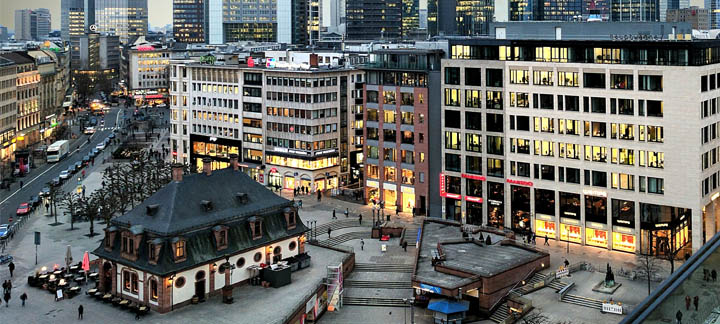Germany, Europe’s economic “locomotive”, which imported more than 1.05 trillion USD worth of goods last year, is also a major importer of food, with a growing focus on organic products. In addition to its diverse and developed internal production, Germany is one of the top importers in many food sectors: fruit and vegetables, nuts, olive oil, tea and coffee, honey, etc.
Organic food
Germany has also been a leader and a pioneer in the organic food sector in the last decades. Nearly every German supermarket has a diverse offer of organic foods and there is an increasing number of more than 2500 specialized shops that sell almost exclusively organic products. Some of the largest importers, like Lehmann Nature, have been in the business since the 80s.
As the demand is still significantly greater than the internal production, Germany must rely on imports, which in the majority of cases come from other European countries. The main suppliers in the organic fruit and vegetables segment are Spain, Italy, France, who provide products like apples, citrus, tomatoes, zucchini, broccoli, salads, herbs, mushrooms, avocados or potatoes.
For more exotic fruit like kiwi, bananas, coconuts, mangoes or pineapples German importers work mainly with producers from New Zealand, Africa (Cameroon, Ghana) or the Dominican Republic.
The overall fruit and vegetables market is also one of Germany’s largest ones, with imports of more than 5.3 billion USD. As Germans still consume far less fruit per capita than other Europeans, the growth potential remains high. Other interesting opportunities are available for producers who can introduce new and exciting products on the market (ex. exotic fruits from the Amazon).
Nuts, seeds and dried fruits, like premium dates from Tunisia for example, are more and more popular thanks to their multiple health benefits.
Coffee
Coffee is part of the morning ritual of almost every German, a habit that made the nation the largest European market for this commodity and the third in the world, after the US and Brazil. In 2016, annual per capita consumption reached 162 litres, according to the German Coffee Association. The largest growth, 7.7%, was reported by the whole bean category, while coffee pods and coffee capsules also performed well. The largest market share, more than 60%, continues to be held by roasted ground filter coffee.
Without internal production, Germany imports mainly green coffee from developing countries. The importers favour coffee from producers in Brazil, Vietnam, Peru, Indonesia, Honduras or the African continent (Ethiopia).
There are solid opportunities in the organic coffee sector, mainly for producers of high quality, certified products and for those who provide Arabica blends.
Producers who want to penetrate the German market must make sure that they comply with the legal requirements of the EU. Special attention is required to the transport and packaging. Coffee importers favour partners who can send product samples and who demonstrate that they are trustworthy. Communication is very important, as well as an established business background.
Honey
Germany is one the top honey importers in the world and its food industry uses large quantities of industrial honey that is usually purchased from various developing countries.
Even if the honey imports saw some fluctuations recently, mostly due to the production problems of some of the largest exporters (ex. Argentina), the importers manage to adapt and purchase honey from other countries like Ukraine or Romania. These Eastern European countries are able to offer high quality honey at low prices and are still preferred over most Chinese producers, where the main concerns gravitate around the quality of the product. Still, some German companies managed to establish partnerships with Chinese honey producers and are benefiting from very low prices.
The producers who are looking for German honey importers should first start by creating a solid marketing plan and brand. If the budget allows it, participation in industry expos and conferences can be a good strategy to meet potential buyers. For companies with smaller budgets some research and direct marketing can prove very useful. They can use solutions like the BestFoodImporters Honey database to get in touch with the contact persons of various importers and present them their products and offers.
